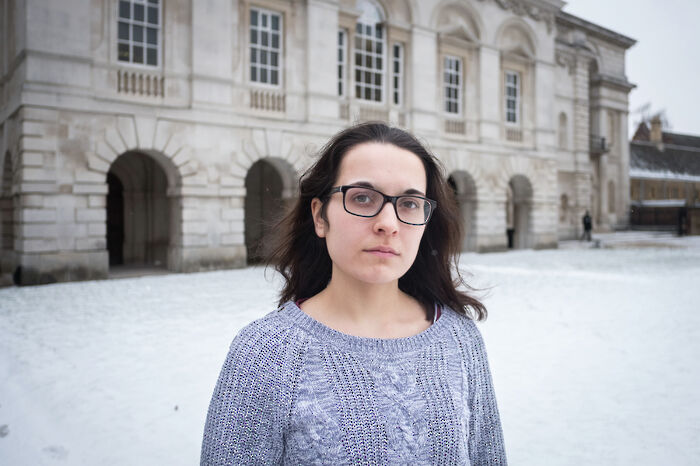The University’s abysmal stance on climate change has led me to resign
Lambasting the timidity and ineffectiveness of the University’s divestment working group, Alice Guillaume articulates the reasons for her resignation from the group

For almost a year I have been representing Cambridge Zero Carbon on the University’s divestment working group. Today, I am resigning from the group on the grounds that the report fails to address the urgency of climate change and the injustices it engenders.
Climate change is not a future issue. It is only a future issue if you value the lives of the privileged – white lives, the lives of the wealthy – over the marginalised. For people across the globe, particularly vulnerable communities in the Global South, the climate crisis arrived long ago. This sense of urgency was conveyed by students and members of staff in the Town Halls. However, this has not been reflected in the report. The significant sections of the report dedicated to reform of the university’s estates and improved coordination of climate-related research, are woefully inadequate. The university can, and should, take action to reduce the emissions of its estates and operations, and researchers can always gain insights and impact by working together. But these responses will not address a crisis that threatens the livelihoods of hundreds of millions and the security of our ecological and social systems.
Through its failure to make any substantial commitments, the report lets down not only those that have campaigned for divestment for so long, but also those communities across the world already experiencing the deadly effects of climate breakdown.
We want a university that is democratic, transparent and is accountable to staff and students alike.
Climate change is a political issue that intersects with other axes of social injustice, including gender and racial inequality. All members of the working group accept that climate change is real, but the notion of climate change represented in the report is one that is depoliticised and made technical; these framings of the problem shape the spaces for potential solutions. Implicit in the report is a dangerous dependence on the idea that fossil fuel companies will change their behaviour and, somehow, prevent us from exceeding the 2°C temperature rise limit entrenched in the Paris Accord, let alone the 1.5°C that is necessary to ensure the security of the livelihoods of those at the frontline of climate change.
The report is superficial in its understanding of Cambridge’s responsibility. On the one hand, it acknowledges the responsibility Cambridge has, conveyed at the Town Halls, to use its influence and reputation to lead on issues regarding climate change and investments. What is not acknowledged is that this responsibility stems from a need to address Cambridge’s role in the current climate crisis, through its funding of companies engaged in the extraction of fossil fuels.
The working group is afraid to be ambitious, in the fear that its recommendations will not be accepted by the University Council. It is afraid to commit the university to change. But we fear that, by failing to commit to divestment, Cambridge will miss our final opportunity to acknowledge our historical contribution to climate change, change course and act in solidarity for a just, respectful and sustainable future. We fear that, if the university continues to fund fossil fuel companies, it will remain complicit in an industry that not only continues to fuel climate change, but is responsible for horrific human rights violations and neo-colonial claims on the land and resources of indigenous peoples.
Zero Carbon has engaged in this process, which was set up to delay a commitment to divestment following the democratic vote in favour of it at Regent House. We have made the argument for divestment heard, challenged the depolitical framing of climate change and countered the insufficient and technical solutions posed in the report. Recognising that climate change affects the vulnerable most is not about offering our sympathy but campaigning in solidarity, by challenging the power structures that perpetuate this crisis where we have access to them. Unsurprisingly, those that embody these same power structures within the university do not want, and cannot see the need for, things to change. Climate change cannot be tackled without tackling the political power of the fossil fuel industry, a reality that the university will not accept. I have no faith that the working group will recommend a commitment to divestment and I cannot, in good conscience, sign on to it in its current form.
We want a university that is democratic, transparent and is accountable to staff and students alike. We want Cambridge to embody the values of its members and act on its responsibility to the entire global community. This is our collective future, and we, a united community of staff and students, will not stop fighting until our University plays its role in building the socially just world we urgently need
 News / Caius mourns its tree-mendous loss23 December 2025
News / Caius mourns its tree-mendous loss23 December 2025 News / Clare Hall spent over £500k opposing busway 24 December 2025
News / Clare Hall spent over £500k opposing busway 24 December 2025 Comment / Yes, I’m brown – but I have more important things to say22 December 2025
Comment / Yes, I’m brown – but I have more important things to say22 December 2025 Interviews / Politics, your own way: Tilly Middlehurst on speaking out21 December 2025
Interviews / Politics, your own way: Tilly Middlehurst on speaking out21 December 2025 Comment / The ‘class’ of Cambridge24 December 2025
Comment / The ‘class’ of Cambridge24 December 2025








